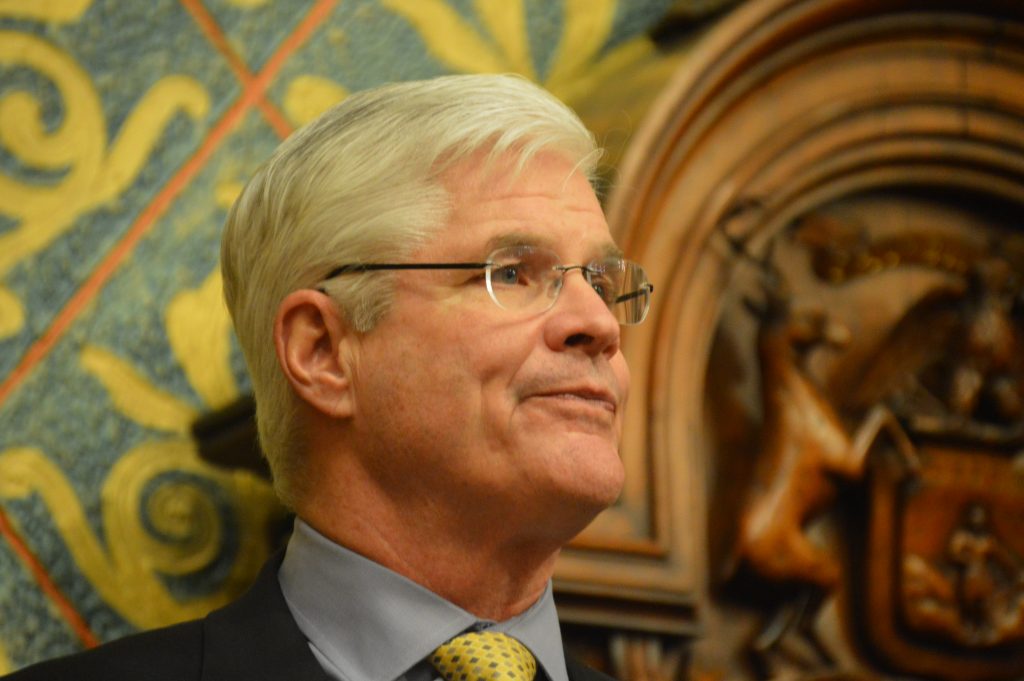Sexist Language Reignites Conversations About Misogyny in State Government
New research suggests that voters increasingly want sexism in politics to be addressed head-on.

Recent comments by male Republican lawmakers at Michigan’s state Capitol have renewed conversations about misogyny in state government.
As part of the weekly series MichMash, Slate’s Cheyna Roth and WDET’s Jake Neher talk with MLive political reporter Lauren Gibbons about how voters are reacting to sexist language from policymakers.
Subscribe to MichMash on iTunes, Spotify, Google Podcasts, NPR One or wherever you get your podcasts.
For months now, there has been a lot of charged, sexist language going on at the state Capitol, particularly with how lawmakers and some members of the GOP refer to Gov. Gretchen Whitmer.
While sexism in politics is nothing new, this is something that seems to have ramped up recently. One example is state Sen. Ed McBroom (R-Vulcan), who said Whitmer was “emasculating” Republicans during a speech on the Senate floor. Senate Majority Leader Mike Shirkey (R-Clarklake) said that Republicans “spanked” Whimter when it came to the budget.
This is something Gibbons has been following. In a recent article for MLive, she explores how this use of language impacts voters. She looks at a study by the Barbara Lee Family Foundation, and finds that more voters want sexism to be addressed head-on, especially as more women are being elected to serve than ever before.
“In Michigan, that’s particularly interesting, because like most of the country, we started to see more women getting elected,” says Gibbons. “But in Michigan, we saw the governor, the secretary of state and the attorney general, all three statewide positions at the same time were filled by women. And so, the conversations that are happening now about sexism are kind of taking center stage in Michigan, because we have seen so many women rise to these very high-profile positions.”
This matters for people outside of the state Capitol, Gibbons says, because these conversations have a way of distracting from important policy discussions.
“I think that everyone would prefer to be hearing about, you know, what’s happening with the state budget, or what is going on at so many different arenas, the pandemic response, there’s a lot to be discussed,” she says.
“There’s a lot to be debated over what is the appropriate path moving forward. And in a lot of these situations, if this language is used, if it’s being perceived as sexist, it’s distracting from the conversation that lawmakers were trying to have in the first place.”
But while these incidents keep popping up, Whitmer has been consistent in her response. Gibbons says Whitmer has continually said she’s ready to work with the Legislature, “even if members ‘want to indulge in conspiracy theories or wants to hurl insults.’”
“And she’s kind of left it at that. She hasn’t gotten much further into it,” Gibbons says.
“The governor has largely tried to acknowledge it…I don’t think that she necessarily wants to prolong the conversation, based on some of her remarks about the issue.”
